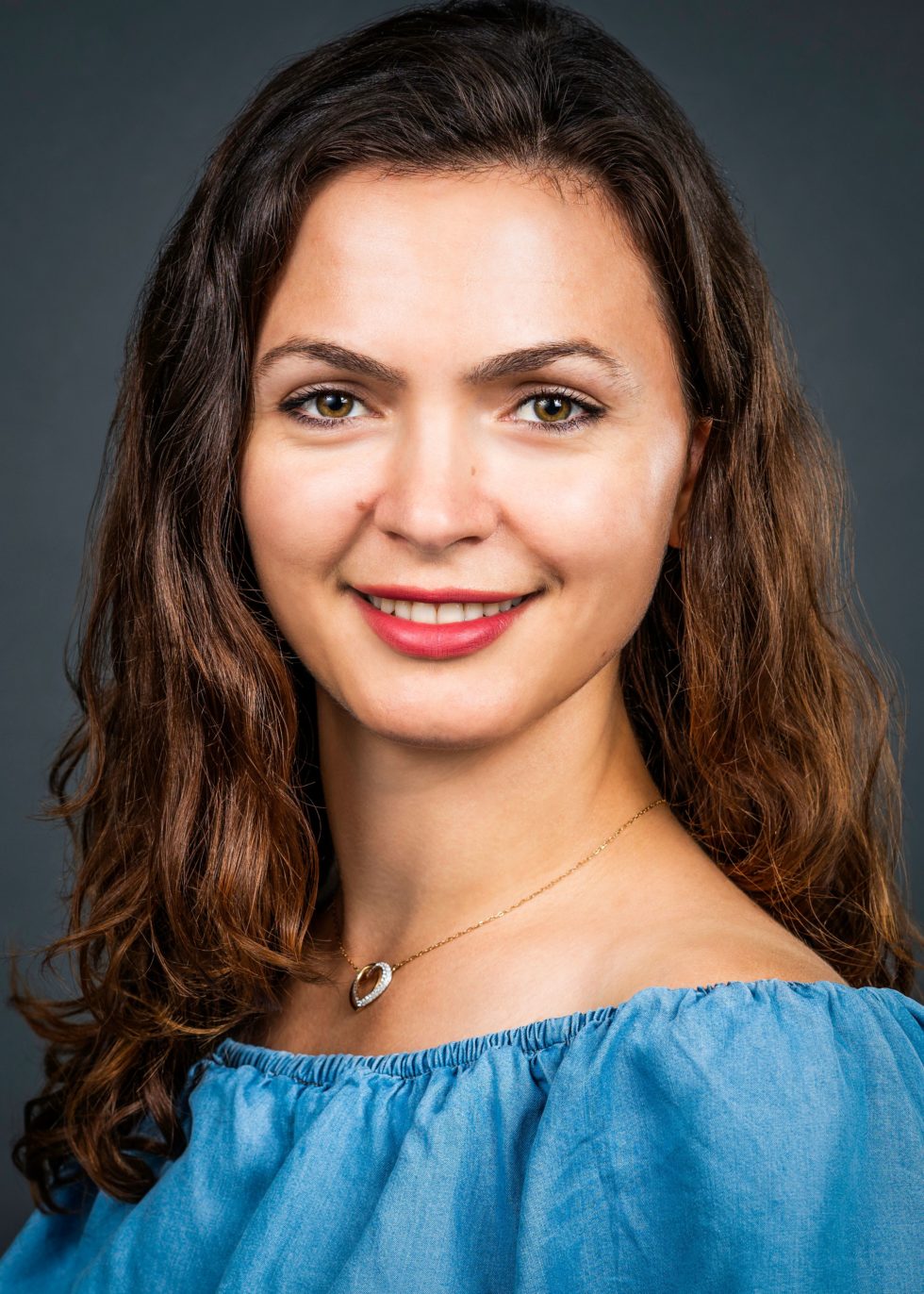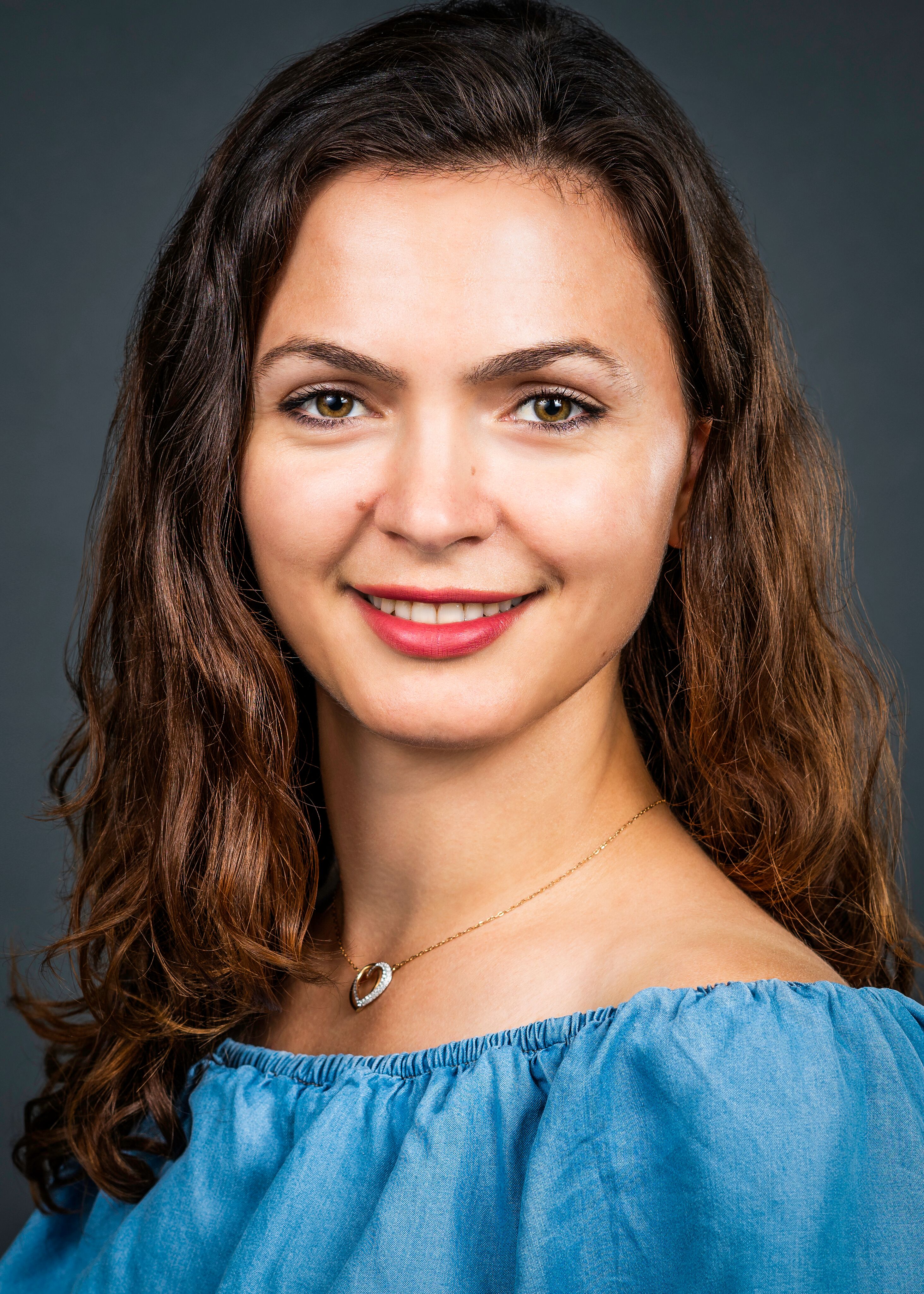
Qamlije Lokaj: Engagement of Diaspora Professionals at the Country of Origin
By: Kosovo Diaspora October 12, 2020
Qamlije Lokaj was born and raised in Kosovo, in the town of Malisheva, where she lived until 2007, and then migrated with her family to Germany, where she attended High School studies and University studies. Her Bachelor studies at the University of Regensburg were devoted to South East Europe (mainly in the field of history, culture and language) in combination with Political Science. Following the Bachelor studies, she attended a Masterprogram, i.e. the interdisciplinary Elite Graduate Program for East European Studies (Ludwig-Maximilians-University in Munich and the Univerisity of Regensburg), whose focus was on regional competence for central Eastern, South Eastern and Eastern Europe.Currently, Mrs. Lokaj works at the German Federal Office for Migration and Asylum in Nürnberg and her spare time she devotes to human rights issues and the Albanian diaspora. Also during her studies she was actively engaged in Albanian and other intercultural associations.In this interview she outlines the findings of her research on the factors that drive diaspora professionals to return to their country of origin, their potential and willingness to contribute to their homeland, and how well the diaspora’s human capacities match with the institutional needs in the homeland.
KD: Can you inform us about your research findings?
Qamlije Lokaj: My research is mainly devoted to the topic of Kosovar migration. I will try to summarize it as briefly as possible, because the thesis is around 80 pages. The title of the thesis is “Against the flow? Why do Kosovar migrants return to Kosovo voluntarily? “What are the Push and Pull factors that play a role in taking this decision?” That is, “Against the flow” because while most of those living in Kosovo, and according to the statistics, especially young people, want to emigrate from Kosovo, while at the same time there is a certain number of Kosovar emigrants who actually want to return voluntarily to Kosovo. The thesis is of an anthropological nature, because it is mainly based on people who migrate, their perspectives and motives in the micro perspective. The focus of the analysis has been confined to the last fifty years, because the analysed group of emigrants that have decided to return to Kosovo have emigrated from Kosovo during these last fifty years. The purpose of this thesis has been the findings and analysis of the motives for the return of various generations of Kosovar migrants back home. The starting point of the hypothesis was that “The return of Kosovar migrants is not a rational decision, but rather a complex and emotional process, which is influenced, among other things, by family, social networks and strong ties with the homeland”. I have conducted a total of 24 semi-structured biographical interviews with emigrants returning to Kosovo from different countries, e.g. from Germany, Sweden, Italy, Austria, USA etc. As any other student naturally I have used also secondary literature, external surveys, theories on migration and return of migrants, etc. In order to better understand the reasons for return, in the first part of the thesis I have tried to deal more with the reason and period of time of migration. Taking this into consideration, Kosovar migrants who have migrated in the last 50 years can be divided into three groups (which of course do have subgroups). I started with the“Gastarbeiter”, i.e. those Kosovars who migrated as seasonal workers in the ’60s and’ 70s, which were followed by their families and now there are third generations, almost also the fourth. Most of these “Gastarbeiter” are retired now, have returned to Kosovo or even have passed away. The second group consists of those who have migrated as refugees and as politically persecuted during the ‘80s-‘90s. Some have returned willingly or unwillingly after the war, while others have made family reunification. The third group, of those who have migrated after 2000 until today, i.e. in peacetime, are people who have migrated for reasons of employment, education, a better life, or a better perspective for them and their families. In the three aforementioned groups, we have also the phenomenon of family reunification or transnational marriage, i.e. those who live in Kosovo and form relationships or marry someone outside of Kosovo.
The second part of the thesis, which was the main point of my analysis, was focused on the ones who voluntary returned to Kosovo, key factors for return, their experience from the place of migration, the role of family, other social ties and other factors during this return process. In sum, as to the results from the interviews, all the interviewees are academics or well-qualified workforce. Most of the interviewees had at least a Bachelor’s or Master’s degree, some of them even have a doctorate in countries where they have lived and they speak different foreign languages, while after returning to Kosovo they worked in state institutions or international organizations and some of them have even opened their own Start Up companies. None of the interviewees was employed in the private sector, which is more or less self-evident given the salaries and conditions of this sector. For all migrants who have lived abroad, it is worthwhile to mention that they have gained new knowledge, learned new languages, known new cultures, (which is positive for their engagement in Kosovo) and in these particular cases it has served them even after their return. Some of these interviewees have projects or are engaged not only in Kosovo but also in the countries where they have lived, i.e. this is the phenomenon of transnationalization as we call it. They are active in both countries. During their living in the west, they have gathered not only experience but also established contacts, which they still keep. Almost everyone has kept their western country citizenship where they lived, because they saw it as an opportunity for movement, for work reasons or even for tourist reasons, but also as a kind of back up plan in case their return fails, because the return process and reintegration in Kosovo is not that easy. I have seen this in some people who have returned to Kosovo but due to various problems have re-emigrated, left Kosovo again, and in some cases have tried to return more than twice, and this is known as the rotation phenomenon. These people complained that they encountered problems with corruption, nepotism and two of them were even threatened with death, because they tried to change mis-created structures, so they decided to leave Kosovo again, although they would have wanted to stay and engage for a longer period in Kosovo. The rest, who lives in Kosovo do not want to leave Kosovo but complains that Kosovo does not offer much for their children’s education and that the health sector is not as good, and if they would leave Kosovo again they would only do it for the sake of their children.
KD: Which are the main factors pushing professionals from the diaspora to return to their country of origin to give their contribution?
Qamlije Lokaj: The most important factors, during the planning of emigration but also of their return, have been the family and the social networks. All decisions are directly or indirectly related to the family, because family is the one which provides them with moral and financial support. The family plays a key role, often being the main reason for emigration because often this path is the only opportunity to provide a better life for the family. In other cases, some family members are already in the diaspora and “attract” other members. Family influence also exists during the returning process. In most of the cases, a phenomenon we all know to well, their families have constantly talked about the country, even if the children were born abroad, or were young when they emigrated. Usually Albanian families listen to news or other programs in Albanian at home, go to concerts and other Albanian activities, maintain strong ties with the family, relatives and friends, visit Kosovo regularly, and these factors play a relevant role. This means that those who return are directly or indirectly influenced by the family and, then, when one of the members returns to Kosovo the others are also influenced, returning together or later, as the first returned member creates the conditions for the return of others. The second much-mentioned factor has been the connection to the homeland and the longing for it. This was especially seen among those who emigrated during the war because they did not have the opportunity to come to Kosovo often. For these people, longing was a very important factor. The third factor has been the desire to engage in the development of the country, and here I have seen two main phases. The first phase immediately after the war, 1999-2000 and the second phase directly after the declaration of Kosovo’s independence in 2008.
The fourth factor in the return process has been negative experiences in the country of residence, eg discrimination, feelings that they do not belong to that country, etc. The fifth factor, but which has been only in a few rare cases, has been marriage with partners living in Kosovo. In my case, I only had women interviewed and, thus, unfortunately we can not make a deeper comparison in this regard. Respondents who returned to Kosovo for the sake of love, decided to return to a partner living in Kosovo because he was probably financially stable, which facilitated the return, or because both wanted to live in Kosovo. Hence, these are the five main factors, which according to my results influence the decision and realization of voluntary return to Kosovo. Often times, 2-3 factors can affect simultaneously. Most of returnees emphasized that after returning they had a feeling of relief, a spiritual fulfillment, the feeling of being at home, which is usually associated with positive feelings, while when they left Kosovo they had more negative feelings.
It should be added that in the group of those who emigrated after the war, their willingness and readiness to return are not as present as in with the other groups. This is due to the fact that, they are extremely disappointed with the Kosovo political reality and do not see perspective in Kosovo. Another reason may be the fact that the group decides to emigrate not because it is politically persecuted or its life is endangered but because these people are forced to emigrate because they see no other perspective, regardless of their professional background. This is the bitter reality of Kosovo and the Balkans in general and I do not want to dwell too much on the issue of politics, because our reality is known and constantly discussed.
KD: Which is the potential of the diaspora to contribute to the development of the country of origin beyond remittances, through their professional fields?
Qamlije Lokaj: I believe that there is a potential, especially among the younger generations, who are engaged in various fields. Only in the department where I work, there are two Albanians, and everywhere I go I see Albanians in different fields, starting in the field of IT, politics, medicine and in almost all other fields there are Albanians from Kosovo, Albania and other albanian territories, who are willing to engage directly or indirectly in their home countries. I believe that we are no longer at the time when our parents and grandparents dropped out of school and came to work, simply to provide a living for themselves and other family members, who were left in Kosovo. Our post-war generation, the second generation of those who came pre-war, and those who migrated for education are present in all possible fields. We have many Albanians in the best universities in the world. In Regensburg and Munich, where I studied, I met dozens of exemplary Albanian students. For example, we have the association of Albanian students in Regensburg, where over the years some 30-50 Albanians have been willing to come from time to time and engage in various activities. The number of Albanians in the university has been even greater, but also in other universities in which I have contacts I see that Albanians are already achieving more and more, because the generation of those who came before the war or during the war as children have reached university age or have just finished their studies and are already active in various fields, and I believe this is a potential that should be used.
KD: How can the human capacities of the diaspora match the institutional needs and market demands in Kosovo and Albania?
Qamlie Lokaj: As mentioned above, the Albanian diaspora is very complex. Post-war generations in particular are educated in the best education systems in different parts of the world. Albanian youth is active in various fields and professions. We have Albanians who are active in policy-making in the most important western countries, in medicine, law or even lecturing for the most prestigious universities, have successful businesses and compete with world famous companies. In all German state institutions, in many governmental and non-governmental organizations, with which I have had the opportunity to cooperate, I have met professionally well-trained Albanians. This is a great potential for Kosovo. Even in the sectors of gastronomy, construction and many other fields which are related to vocational education, which in Kosovo is not sufficiently developed and urgently needs improvement, we have experts who are ready to engage, be it for a temporary period or longer.
In Kosovo we have many girls and boys who, despite the opportunities and not very favorable conditions in Kosovo, can undoubtedly be compared to young people in Western countries. We all know that the level of education in Kosovo, for various reasons, is not good. We know that Kosovo, as a country, is isolated and that many things do not work properly. It is not the idea that experts from the diaspora will engage and save the country. Only by combining the knowledge and experiences of the diaspora and those living in Kosovo and knowing the Kosovar reality well, a productive result can be achieved. Because you can be an excellent expert in a certain field in the country where you live but this does not mean that you can use this expertise directly in Kosovo. It must be adapted to the needs but also the mentality. Some of those who return or engage in Kosovo or Albania sometimes seem to me to forget this fact and try to apply methods which may be very well suited to western countries but which you cannot apply directly to our countries and where we can not expect similar or immediate results because the basic conditions are not the same.
KD: How willing are professionals from the diaspora to offer their assistance to the country of origin, and how willing are institutions in the countries of origin to offer opportunities and to cooperate? What can be the obstacles in this regard?
Qamlie Lokaj: The result of interviews and analysis of what are called secondary sources, other surveys, etc. indicate that there is a willingness to engage in the home country. The majority, i.e, I am always talking about my perspective, my analysis and my personal experiences, the readiness of the diaspora for engagement is very high. But the opportunities for engagement are few. Most of the respondents also mentioned the “Brain Gain” campaign, which was initiated by the Ministry of Education but there were cases who said that they applied there but never received a response. During the research I was in Kosovo for 2-3 weeks and I visited the Ministry of Education, but no one could tell me anything about this campaign. Everyone sent me from office to office excusing that that they were not part of the ministry at the time and that maybe someone else might know something more. Some respondents told me about their internships done in Kosovo. There are also those who engage in the return or temporary engagement program in Kosovo. But often there are no proper programs, other than those of the German GIZ, which are still in development. The problem that is often mentioned is that local institutions unfortunately often have no idea how to use diaspora expertise in the right place. Kosovar institutions must be taught to see the diaspora not only as financial potential, but to know how to use it as a good opportunity to achieve something for the development of the country. Awareness is often lacking in the sense that the person who will be engaged can really contribute something from their experience. Often, it happened to me twice, young people from the diaspora come to Kosovo or Albania, spend a month in internship, more or less as a kind of vacation and not as a job. In this case, neither we nor the institutions benefit much, and neither know how to get more out of that internship or that commitment. Maybe more needs to be done there. Which is the best method, I do not know. I believe that in that direction the institutions should have a higher awareness, and a more intensive communication should be developed between the institutions and the diaspora. And here I must add that your programs like Germin are the best example in this regard. You have paved the way for better communication between the diaspora and home countries and made clear the potential of the diaspora beyond remittances and its willingness to engage.










